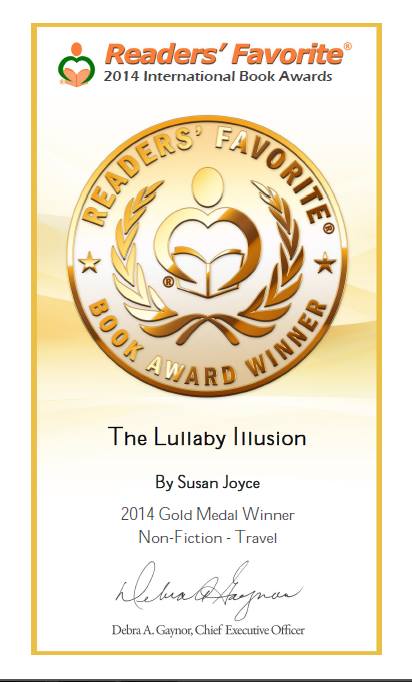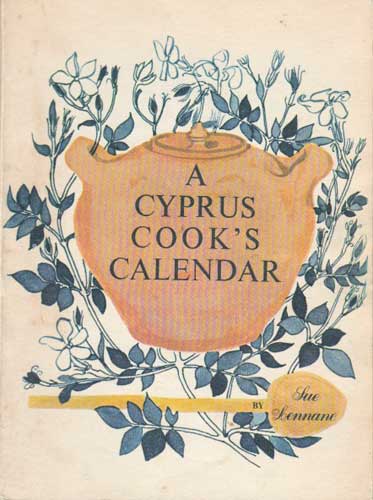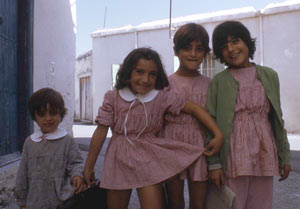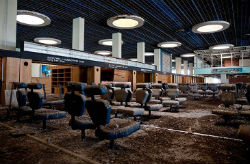
Kleftiko

I love Mediterranean cuisine and when our weather here in Uruguay (Southern Hemisphere) changes from the hot days of summer into the cooler days of fall, into winter, I find myself wanting warm comfort food. The kind of dish that cooks slowly in the oven for hours (until the meat falls off the bone) with the sweet smell of rosemary, oregano, or wild marjoram wafting in the air, Mediterranean style.
When I lived in Cyprus in the early 70s, I had a wonderful cook book titled “A Cyprus Cook’s Calendar.” It was written by a British writer, Sue Lennane, for the British Forces Broadcasting Service in Cyprus in 1969. A delightful month by month cook book, it provided recipes based on fruits and vegetables available and in season. I used it often and was sad to lose it, along with everything I owned, following the Cyprus War in July 1974.
Years later, while living in Frankfurt, Germany, a friend who was my neighbor in Cyprus, sent me a copy of the cook book (the original First Edition 1969). I was thrilled because it had so many of my best-loved Cypriot recipes in it.
One all-time favorite is a recipe for slow roasted lamb, called Tandir in Turkish and Kleftiko in Greek. Lamb Kleftiko, roughly translated, means stolen meat. Legends say that thieves would sneak onto a remote Greek hillside and steal a lamb or goat, and cook the meat for hours over coals in a hole sealed with mud to prevent steam escaping and alerting the shepherd who previously owned the animal.
In Cyprus, Kleftiko is cooked in a sealed earthenware pot with a narrow opening buried in the earth, with a fire under it, and left to cook very slowly for hours. Kleftiko pots are still sold in Cyprus. (See picture on the front cover of the cook book.) Since my Kleftiko pot was also left behind in Cyprus, I’ve reverted to using a large, deep casserole dish, covered with aluminum foil and a tight fitting lid.
Lamb Kleftiko (Serves 6)
Ingredients:
2 lb. lamb (a piece of leg or loin cut up)
salt and pepper
2 T. olive oil
oregano or wild marjoram
juice of ½ lemon
2 tomatoes, diced
1 cup red or white wine
1 large onion (peeled and cut into quarters)
1 T. peeled and chopped garlic
Preparation:
Place the meat and olive oil in the Kleftiko pot or casserole dish. Add the onion and garlic. Sprinkle with oregano, salt, pepper, lemon juice, and red or white wine. (A glass of wine is also recommended for the chef and any helpers.) Cover the top with aluminum foil and place the lid on top. Cook in a moderate oven, No 3, 325º, for 3 hours. Turn off oven and leave simmering for an extra hour.
Kleftiko is rustic, delicious, and finger-licking good. Serve over a bed of al dente pasta or rice. It’s extra delicious when served with eggplant ratatouille.
ENJOY!
Give Peace A Chance!

In the early hours of Saturday morning, on 20 July 1974, I awoke to the distant drone of aircraft. Stunned, I sat up in bed and listened. Planes. Getting louder. The realization sent shivers down my spine. I placed my hands over my heart. “Oh, my God!” I gasped. “It’s the Turks!” I looked at the clock—5:20. The crack of dawn. I jumped from bed and screamed, “The Turks are attacking.”
Moments later, a series of explosions awakened the entire sleepy, seaside village of Kyrenia, Cyprus.
It happened 40 years ago today but I still remember the details vividly; the sights, the smells, the sounds, the taste of dirt and rubble collapsing around me as I ran under the stairs for shelter.
My peaceful life in Cyprus was blown apart first by the Greek Officer’s coup on 15 July 1974, followed five days later by the Turkish invasion on 20 July 1974. Thousands of lives were shattered forever by the atrocities, including foreigners who like me who lived there. To this day I marvel, bewildered at how at how a tranquil place, seemingly paradise, could be rendered a living hell in the space of a few days. The fighting between Greeks and Turks almost started a world war because two NATO allies fought against each other. The island of Cyprus remains divided by a line cutting across the capital of Nicosia–the world’s last divided capital.
And there are conflicts and atrocities happening all over the globe; In Syria, Tunisia, the Gaza strip, Ukraine, the Central African Republic, Republic of Congo, Egypt, Mali, Nigeria, Somalia, Sudan, and South Sudan.
The vast majority of casualties in any war are civilians, who neither want war nor gain anything from it. Quite the opposite. War defeats the human spirit. What will it take to bend history, and honor the will of the people over that of their “leaders?”
Paving the Way for Peace

https://www.indiegogo.com/projects/women-s-initiative-for-peace-winpeace-in-greece-turkey-and-cyprus#home
High school students from Greece, Turkey, and the divided island of Cyprus meet each year for a week-long summer camp hoping to pave the way to a permanent peace between the countries. For centuries they coexisted and lived peacefully, side-by-side, until the early 20th century when political manipulation created nationalist movements to turn them against each other.
I lived in Kyrenia, Cyprus in the early 70s and witnessed the Greek coup on 15 July 1974 and the Turkish invasion on 20 July 1974. Thousands of lives were drastically changed forever by the atrocities of war. Of which I was one.
I urge you to support this initiative to win peace in the region.
The Lunacy of War

Photo essay of abandoned Cyprus buffer zone
I found myself staring at the photo essay above, by Reuters photographer Neil Hall, for a long spell. The disturbing images sent me back in time, as I sorted through my personal memories of the island of Cyprus during the early 70s.
On 15 July 1974, I was at the airport in Nicosia waving my husband (at the time) goodbye and watching him disappear through the sliding glass doors of the Nicosia International Airport. Normally, I would have parked the car, gone inside, and enjoyed a cup of coffee in the modern and comfortable lounge—a showcase of 70s furniture and fixtures. But feeling anxious about the mounting tension between the Greeks and Turks, and after seeing armed soldiers standing along the road leading to the airport, I decided to drive home to Kyrenia as soon as possible. My husband tried to assure me by saying it was probably a routine military exercise and then reminded me that the car brakes needed fixing on my way home.
Steering onto the exit road, I noticed more soldiers gathered. Even more than we had seen on our way to the airport. Scores stood alongside the road and in empty fields. I turned the radio on to BBC. Just static. Same static on other radio stations. I switched it off. Nearing the roundabout, I noticed a tank approaching from the direction of the Greek Army Camp. I pushed down on the gas pedal and sped around the traffic circle and onto the frontage road. A sudden burst of rapid gunfire behind sent shivers down my spine. I was caught in the middle of a killing spree—a coup to topple the nation’s first elected President, Archbishop Makarios III.
My memoir, The Lullaby Illusion—A Journey of Awakening, tells my personal story of the coup and the Turkish invasion five days later. For years following the war, I marveled, bewildered, at how a peaceful place (seemingly paradise) could disappear and become a living hell in the space of a few days.
After almost forty years of time standing still, the buffer zone still contains crumbling relics covered with dust and cobwebs, abandoned houses and cars, and the rusted remains of a gutted airport—a haunting reminder of the lunacy of war.
Race against time …

Evacuated from Cyprus following the war in 1974, I remember looking out the window of the helicopter and gasping at the sight of scattered, charred remains of a place I had known and loved. I wept. My heart ached.
For years following the war, I marveled, bewildered, at how a tranquil place—which seemed like paradise—could simply go away. Unravel, disintegrate, and become a living hell in the space of a few days.
The Lullaby Illusion, my memoir, tells my struggle to find answers, to fit together pieces of a life shattered by the coup in Cyprus on 15 July 1974, followed five days later by the Turkish invasion on 20 July 1974. Thousands of lives were drastically changed forever by the atrocities, including foreigners who happened to live there. Of which I was one.
Knowing today, almost forty years later, that more than 2,000 of the country’s one million population are still missing I mourn and am reminded that in war there are no winners—only survivors.
Cyprus Ghost-town Rebirth

DERYNEIA, Cyprus — Time virtually stopped in 1974 for the Mediterranean tourist playground of Varosha. When Turkey invaded Cyprus in the wake of a coup by supporters of union with Greece, thousands of residents fled, and chain-link fences enclosed a glamorous resort that it’s said once played host to Hollywood royalty like Elizabeth Taylor.
The town’s crumbling, war-scarred beachfront hotels have become an emblem of the country’s division between Turks and Greeks. In 40 years, few have set foot inside the town, which remains heavily guarded by the Turkish army and twists of barbed wire.
Donnie’s Drawing
A few weeks after my memoir The Lullaby Illusion was released, I heard from several friends who lived in Cyprus during the Cyprus War of 1974—people who, like me, witnessed the atrocities firsthand. One man (Don)who contacted me was a boy of five when the war happened.
I first met Donnie when he was living with his family in Kyrenia, Cyprus in the early 70s. A few years later Donnie and his family were with me and a group of other civilians stuck in a UN Camp in the hills above Kyrenia during the war in July 1974.
On our third day in the camp a sudden and loud burst of close range gunfire pinned us to the ground as Greek and Turkish soldiers surrounded us and began firing shots at each other. “Move!” I screamed. “We’re under attack.” Noticing a small boy asleep on the ground, face up and alone a few feet away, I crawled over to him and covered his body with mine until the firing soldiers moved on. Then I picked him up and ran with others down the hill toward a ravine. Continue reading “Donnie’s Drawing”
Peace for Cyprus
“Help us reach our aim of achieving peace on our divided island, Cyprus! #peace http://thndr.it/1bqeqQl”

I lived in Cyprus in 1974 and personally witnessed the war that split this beautiful island. Help these determined young people make the world aware of their goal to achieve peace on their divided island.
The Lullaby Illusion hits the shelves (and e-shelves)
Now available!
The Lullaby Illusion
by Susan Joyce
New book details the harrowing personal journey of a young
American woman facing seemingly insurmountable situations while living in the Middle East and Europe. After many miscarriages and the loss of a child in childbirth on the island of Cyprus, Susan seeks solace by creating art and recording her vivid dreams. Through difficult life changes—Cyprus’s bloody coup and war in 1974, a rescue from a sinking ship in the Indian Ocean, learning
of her husband’s secret life, and surviving his deadly assault in Belgium, she discovers her “ticking clock” is not the child she fails to produce, but rather her creative potential.
Following her vivid dreams and intuition, she successfully reinvents herself as an artist and writer. From beginning to end, Susan Joyce reminds us of the stream of awareness that flows through all of us.
Early reader reviews show it resonates universally with men and women:
A hell of a tale…
— Mark Mercer, Writer
Amid the gripping account of her final days living in Cyprus as war broke out and bullets flew past, what moved me most was Susan’s spirit through the difficulties life throws at her. This true story gives honest insight into the complex emotional turmoil we all experience for various reasons, and shows how it is always possible to see the positive and build our life afresh exactly as we choose to live; not to long for what might have been. An uplifting, inspiring and triumphant story.
— Jennifer Barclay, Author, Falling in Honey
…like riding the roller coaster of life, exciting and engrossing, funny and sad. A real page turner. I was sorry to read “The End.”
— Isabel Saltonstall, Editor
Available from Amazon.com, Barnes & Noble, Books-A-Million, Powell’s, other online sellers and better bookstores.


